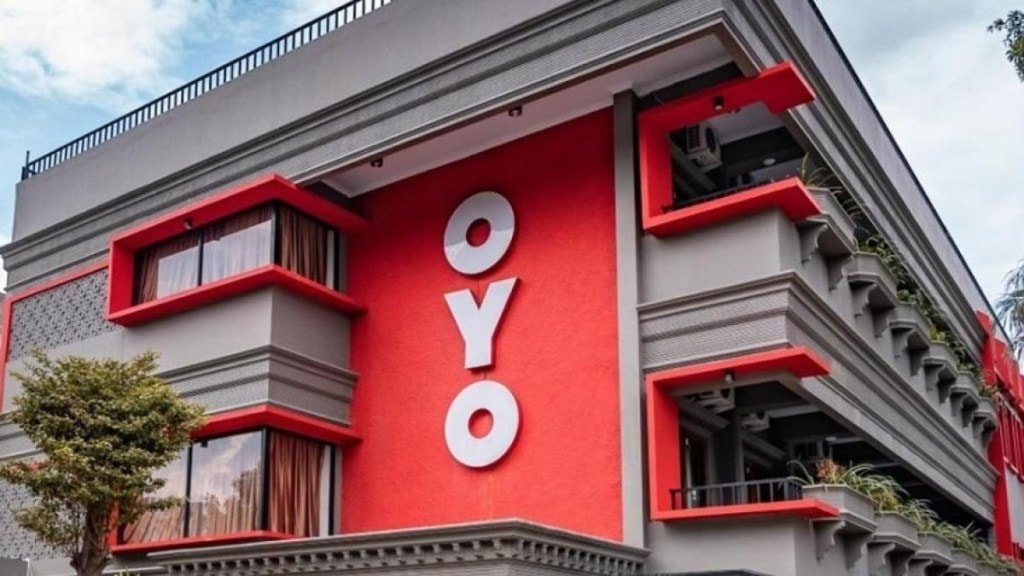OYO, the homegrown hospitality unicorn once mired in controversy and cash burn, has turned a decisive corner. In FY25, the company posted a record profit after tax (PAT) of Rs 623 crore, making it the most profitable Indian startup this year. This marks a 172% jump from its Rs 229 crore profit in FY24, signalling a remarkable transformation in the business fundamentals of the travel-tech firm.
Founded by Ritesh Agarwal in 2013, OYO’s meteoric rise was initially powered by its goal to standardise India’s fragmented budget hotel landscape. Starting as Oravel Stays in 2012, the company rebranded to OYO (short for “On Your Own”) with a simple value proposition: affordable, quality stays with consistent amenities like clean linens, air conditioning, and free Wi-Fi.
But the rocket-fueled expansion, across Asia, the Middle East, Europe, and the United States, would later prove costly. Operational inefficiencies, quality control issues, and partner dissatisfaction plagued its global strategy between 2018 and 2020. Then came the COVID-19 pandemic, forcing the company to lay off staff and shutter properties, and raising doubts about its viability.
During OYO’s downfall from 2020 to 2023, the company faced a severe financial and operational crisis, largely triggered by the COVID-19 pandemic. Its net losses peaked at a staggering Rs 13,122 crore in FY20 and, while gradually shrinking, still remained substantial at Rs 3,943.8 crore in FY21, Rs 1,940 crore in FY22, and Rs 1,287 crore in FY23. Revenue took a massive hit, with global income falling nearly 70% in FY21 alone. Simultaneously, OYO’s valuation plummeted from its 2019 peak of approximately $10 billion to around $2.4 billion by 2024. To curb costs amid collapsing occupancy rates, the company laid off thousands of employees and slashed employee benefit expenses by 63% in FY21. These stark numbers illustrate the depth of OYO’s crisis during this period of sustained financial turmoil.
The turnaround began with a reset in business philosophy. OYO transitioned fully to a franchise-based model, enabling asset-light operations and better control over margins. Instead of owning or leasing hotels, the company partnered with property owners, earning a 20–30% commission on bookings, depending on the services offered.
The company also aggressively cut costs. Between FY23 and FY24, OYO reduced total expenditure by 16%, including over 50% savings on employee-related costs, largely due to rationalisation of its ESOP program and prior workforce downsizing. Simultaneously, the firm refocused on fewer, stronger markets, India, Southeast Asia, and parts of Europe, while de-emphasising its spread-thin global footprint.
Premiumisation and diversification
Then came the turnaround – with one of the most critical shifts in its branding and product strategy. OYO moved beyond budget rooms to higher-margin segments, with collections like Townhouse, Sunday Hotels, and Studio Stays. These properties catered to business travellers, families, and long-term stay guests.
Its Company-Serviced Portfolio, especially in the mid-to-premium segment, emerged as a revenue engine. This focus was complemented by direct-to-consumer efforts: a 48% rise in Q4 FY25 U.S. revenue was attributed to direct bookings via its app and website, reducing dependency on third-party travel platforms.
OYO also expanded its brand suite to include OYO Life (for rentals), OYO Home (homestays), and Collection O (premium budget), ensuring wider demographic appeal and diversified revenue.
M&A activity played a significant role. In December 2024, OYO acquired G6 Hospitality, owner of Motel 6 and Studio 6 brands, bolstering its presence in North America. G6 alone contributed an estimated Rs 350 crore to OYO’s EBITDA in FY25. Another key deal was the acquisition of Paris-based Checkmyguest in August 2024, aimed at strengthening OYO’s European homestay and long-term rental business.
Strong financials
In FY25, OYO reported revenue of Rs 6,463 crore, up 20% from Rs 5,388.7 crore in FY24. Its adjusted EBITDA rose 27% to Rs 1,132 crore, while Gross Booking Value (GBV) increased 54% year-on-year to Rs 16,436 crore. Earnings Per Share (EPS) also rose sharply, from Rs 0.36 to Rs 0.93, a 158% jump. These numbers reflect a shift in the company’s financial structure compared to its earlier years, marked by expansion-led losses.
Notably, the brand has also attempted to shed its reputation as a “couple-friendly” platform—a tag that fueled early growth but also drew criticism. In January 2025, OYO introduced a controversial check-in policy in Meerut requiring proof of relationship or marriage for couples, signalling a pivot toward a more family-friendly image. The company maintains that future expansions of the policy will depend on local norms and partner discretion.
While some argue this could alienate a part of its core customer base, OYO believes that aligning with traditional values may help capture longer-stay family and spiritual travellers. OYO’s turnaround underscores how survival in the startup world demands more than just rapid growth, it requires course correction and fiscal discipline. As it steps into a new phase, sustaining profitability will be the real test.

